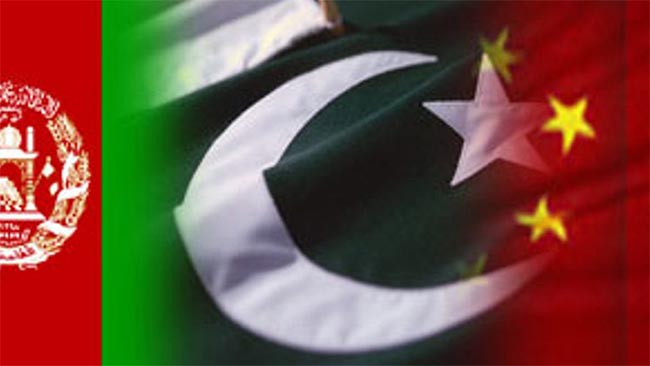With the Taliban’s intensified attacks in Afghanistan, Beijing has hosted the first round of trilateral Practical Cooperation Dialogue (PCD) constituting of Afghanistan, Pakistan and China. The three countries believed that the trilateral cooperation would lead to peace and stability. On the other hand, insurgency continues unabated and inflict heavy casualties upon Afghan civilians and soldiers.
The Afghan-Pak relations hit rock bottom within the two past years and the blame game continued with the escalated insurgency. The mutual relation went from harsh rhetoric and strong condemnation to military clash. Both the countries put the blame on each other after being targeted by terrorist networks, which compounded the tension. This issue stoked strong mistrust between Kabul and Islamabad and left no possibility for supporting the peace process, especially when Pakistan could not nudge the Taliban to peace table.
No wonder, the Afghan-Pak relation plays significant role regarding peace process but this relation has been fragile and shaky. Pakistan is believed to be more pessimist about the India’s role in Afghanistan. “Pakistan is concerned about international isolation and sees its position through the prism of India’s rising international status, including India’s expanded foreign outreach and deepening ties to the United States,” Dan Coats, who, as National Intelligence director, leads a team of more than a dozen spy agencies, including the CIA and FBI is cited as saying. “Pakistan will likely turn to China to offset its isolation, empowering a relationship that will help Beijing to project influence in the Indian Ocean.” Now India’s declaration about sending troops to Afghanistan has worried Pakistan more than ever before.
Kabul has constantly urged Islamabad to use its leverage in bringing the Taliban to peace table – which has been promised but never fulfilled by Pakistan. The persistent peace offering by Ghani’s administration was welcomed only by Gulbuddin Hekmatyar but turned down by other warring parties, including the Taliban. The interminable fluctuation of peace talks, which have come to a stalemate, never led to peace. Afghan nation is suffering painfully as a result of terrorist attacks and suicide bombings. The question is that will the trilateral peace talks hosted in Beijing put an end to the escalated insurgency through pushing the Taliban to the peace table?
It is believed that two seats are still empty in the recent trilateral talks: one for the Taliban’s representatives and the next for the US officials. A unanimous decision needs to be taken to put an end to the current insurgency. For instance, what if Mullah Haibatullah is targeted by the US drone, the same as Mansour, after the Taliban’s positive answer to peace negotiation as a result of the trilateral talks? Earlier this week, a Republican congressman, Adam Kinzinger, suggested resuming air strikes on alleged terrorist targets in Pakistan, and observers in Washington said the Trump administration might do so if terrorists targeted US military personnel and installations in Afghanistan. In such a case, all the efforts regarding peace process will be proved abortive.
There are many ifs and buts about peace in Afghanistan. For example, the US policy for Afghanistan about increasing soldiers is disagreed by Russia and India’s policy is reacted negatively by Pakistan and vice versa. In other words, the US and India seem to support military deal, whereas Russia and Pakistan are in favor of peace talks. The question is that which one of the two groups is right?
Since both “war on terror” and “peace process” failed to bear the desired result, this question still remains unanswered. After all, it is hard to predict Trump’s strategy in this respect.
To break the deadlock in peace process, all countries, including Afghanistan, Pakistan, India, US, Russia, France, China, etc., will have to form a peace committee so as to bring warring parties to peace table or form a military coalition to target all terrorists’ safe havens. In brief, thawing relations only between Kabul and Islamabad will not break the stalemate. Similarly, the trilateral talks will not cover all the challenges, which has been proved regularly. I am in favor of a comprehensive military coalition to target terrorist sanctuaries and root out global terrorism, since Afghanistan has been the victim of foul play in the peace game.
The rising graph of human casualties and Afghans’ unmitigated sufferings continue despite the peace talks. The Taliban are likely to have no bona fide intention regarding peace talks. They have capitalized on this term for many years. There were many trilateral and quadrilateral groups with the aim of breaking the peace deadlock. My question is that why there were no such groups after the failure of “war on terror” to target the Taliban’s sanctuaries? Don’t you think that the nonstop cycle of peace talks is no more than a game?
Home » Opinion » The Nonstop Cycle of Peace Game
The Nonstop Cycle of Peace Game
| Hujjatullah Zia

